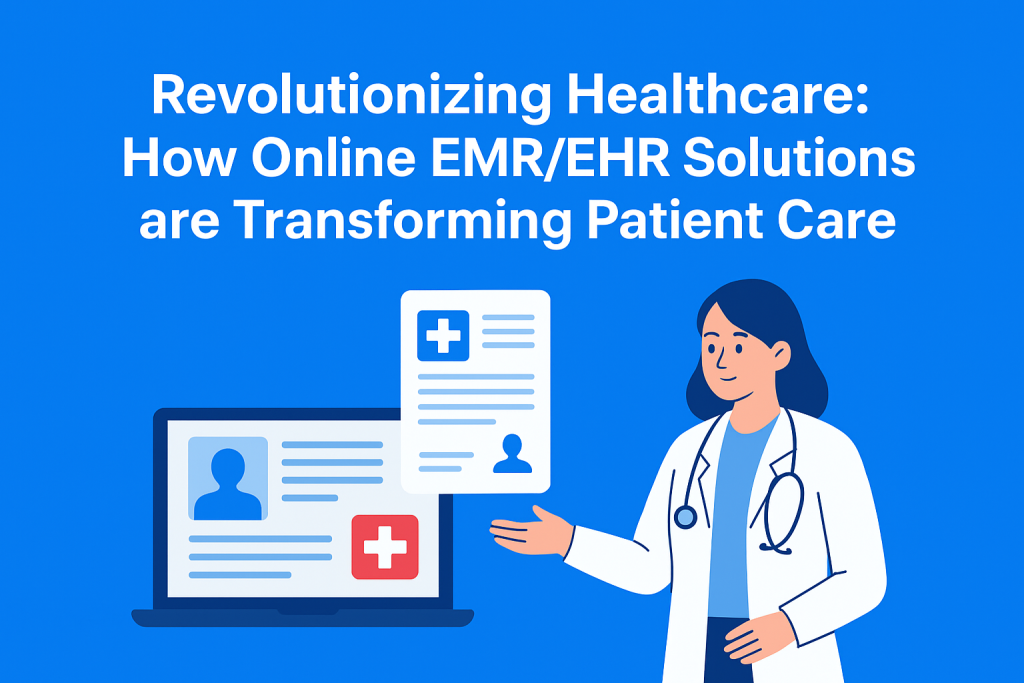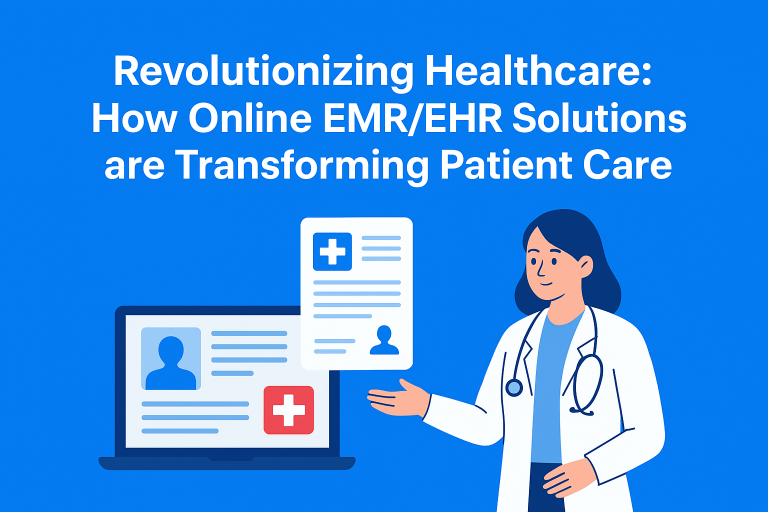The healthcare industry is undergoing a massive digital transformation, and at the heart of this revolution lies Online EMR/EHR Healthcare solutions. In today’s fast-paced world, where patient expectations are rising and healthcare providers are pressed for efficiency, digital systems are no longer an option—they are a necessity. By replacing outdated paper files with electronic medical record systems, hospitals, clinics, and independent practitioners can streamline workflows, improve patient care, and ensure compliance with global healthcare standards.
This blog explores how emr software and EHR solutions are reshaping the healthcare landscape, their key features, benefits, and the future they promise.
Understanding EMR and EHR
Before diving into their impact, it’s essential to clarify the difference between EMR and EHR.
- EMR (Electronic Medical Record): An EMR is essentially a digital version of a patient’s paper chart. It contains the medical history, diagnoses, prescriptions, treatment plans, immunization dates, allergies, and test results for a single healthcare provider.
- EHR (Electronic Health Record): An EHR goes beyond an EMR by providing a more holistic, shareable health record across multiple healthcare organizations. It ensures that different doctors, specialists, and hospitals can access and update a patient’s records securely.
When combined, Online EMR/EHR Healthcare solutions empower providers to store, update, and exchange patient information instantly, reducing the risk of errors and improving decision-making.
Why Healthcare Needs Digital Records
For decades, healthcare organizations have relied on manual paperwork, which often led to inefficiencies, misplaced records, and poor patient experience. With the rising demand for remote consultations, telemedicine, and seamless healthcare delivery, digitization is the only way forward.
Here are some pressing reasons why electronic medical record systems are in high demand:
- Improved Accuracy – Handwritten notes can be misread, but digital entries are clear, structured, and standardized.
- Seamless Access – Doctors and patients can access health data anytime, anywhere, especially important in emergencies.
- Better Collaboration – Specialists, labs, pharmacies, and hospitals can collaborate more efficiently with shared records.
- Regulatory Compliance – Many countries are making emr software adoption mandatory for compliance and quality assurance.
- Enhanced Patient Experience – Patients gain access to their reports, prescriptions, and treatment plans directly through portals or mobile apps.
Key Features of EMR Software
Modern emr software is not just a digital record-keeping tool. It comes equipped with powerful features that support healthcare delivery at every stage:
- Patient Information Management – Securely store demographic data, medical history, and ongoing treatments.
- Appointment Scheduling – Simplify patient bookings and minimize no-shows with reminders and notifications.
- Clinical Documentation – Capture diagnoses, symptoms, lab results, and doctor notes in an organized format.
- e-Prescriptions – Send prescriptions electronically to pharmacies, reducing medication errors.
- Data Security – Protect patient data with encryption, multi-factor authentication, and compliance with standards like HIPAA.
- Analytics & Reporting – Generate insights for better clinical decision-making and operational efficiency.
These features make Online EMR/EHR Healthcare solutions indispensable for providers aiming to deliver smarter and more patient-centric care.

Benefits of Electronic Medical Record Systems
The adoption of electronic medical record systems has shown tangible benefits across the healthcare ecosystem. Some of the most significant include:
- Efficiency in Operations
Digital systems reduce administrative burdens, giving doctors more time for patient interaction instead of paperwork. - Data-Driven Care
With structured patient data, healthcare providers can analyze trends, predict risks, and deliver personalized treatment plans. - Cost Reduction
By eliminating paper records and minimizing errors, healthcare facilities save on operational costs. - Enhanced Communication
EHR systems enable better coordination among doctors, nurses, labs, and insurance providers. - Patient Empowerment
Patients can access their health history through portals, improving engagement and trust in their healthcare providers.
The Rise of Online EMR/EHR Healthcare Solutions in India
India is emerging as one of the fastest-growing markets for Online EMR/EHR Healthcare solutions. With an ever-expanding population, limited resources, and increasing focus on digital health, the adoption of emr software is no longer limited to large hospitals. Even small clinics and individual practitioners are implementing digital health record systems to streamline operations.
Government initiatives like the National Digital Health Mission (NDHM) are accelerating the integration of electronic medical record systems, ensuring every citizen has a unique health ID linked to their medical records. This creates a unified ecosystem where healthcare providers can access accurate patient information, leading to better outcomes.
Challenges in Implementing Online EMR/EHR Solutions
Despite the benefits, implementing emr software comes with challenges:
- High Initial Costs – Some smaller clinics hesitate due to budget constraints.
- Training Requirements – Staff must be trained to adapt to digital workflows.
- Data Security Concerns – Protecting sensitive health data remains a top priority.
- Resistance to Change – Many doctors and organizations are still comfortable with traditional paper-based systems.
However, with user-friendly interfaces, cloud-based solutions, and government support, these barriers are gradually being overcome.
Future of Healthcare with Online EMR/EHR Solutions
The future of healthcare is digital, and Online EMR/EHR Healthcare solutions will play a central role. Emerging technologies are already shaping the next phase:
- Artificial Intelligence (AI): Predictive analytics for early disease detection.
- Machine Learning: Automated pattern recognition in diagnostic reports.
- Telemedicine Integration: Seamless integration of virtual consultations with patient records.
- Blockchain: Securing and decentralizing patient data for tamper-proof access.
- Wearables & IoT: Real-time health tracking linked directly with electronic medical record systems.
In the coming years, healthcare organizations that fail to adopt digital solutions risk falling behind, both in terms of compliance and patient expectations.
Conclusion
The digital transformation of healthcare is well underway, and Online EMR/EHR Healthcare solutions are leading this shift. By adopting emr software and electronic medical record systems, healthcare providers can ensure accuracy, efficiency, and patient-centric care. While challenges exist, the long-term benefits far outweigh the hurdles.
From small clinics to multi-specialty hospitals, every healthcare organization must embrace digital records to stay competitive, compliant, and effective. The future of healthcare isn’t just about curing diseases—it’s about delivering smarter, data-driven, and accessible care to every patient, everywhere.

